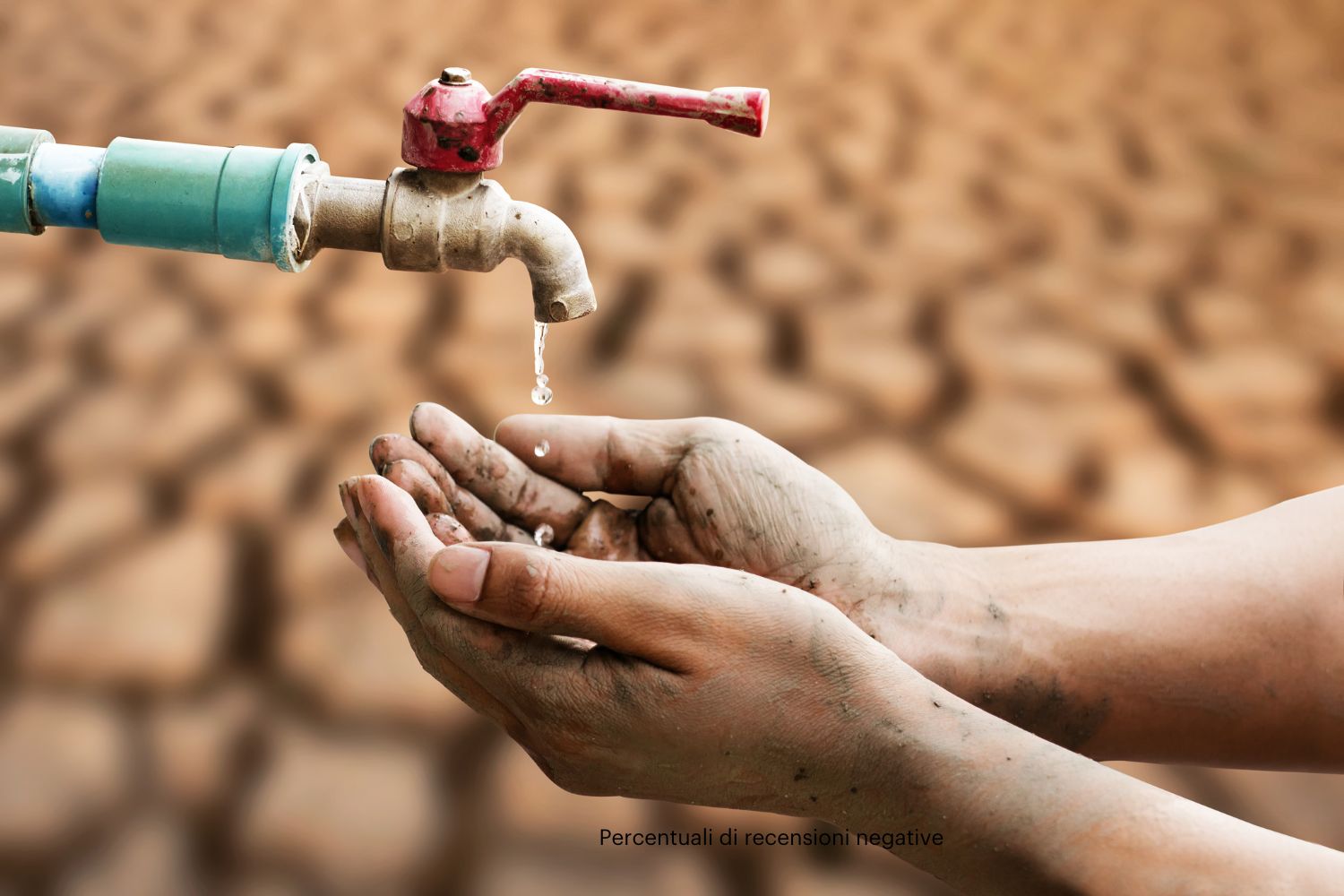The new Oxfam America report is very clear: there are 116 million people in the world who do not have access to water because of water crises, which are in turn caused by climate change. Which yes, are a reality, no longer just a threat

@Canva
There are 8 African countries where people have no access to water. These countries are home to 116 million people who are enduring the harshest water crises due to climate change. This is no longer a mere threat; it is a reality. This is clearly outlined in the latest report from Oxfam America.
Hunger has risen by nearly 80 percent in Eastern and Southern Africa over the last five years, amidst the worsening water crisis – states the report. Nearly 116 million people in eight African countries, the hardest-hit by severe water crises, have no access to clean drinking water.
A global crisis
On a global scale, sudden floods have become 20 times more frequent between 2000 and 2022, and the duration of droughts has increased by 29% since 2000, impacting the most vulnerable communities.
“Climate change is overburdening extreme weather events like droughts, cyclones, and flash floods, and has led to the disappearance of over 90% of Africa’s tropical glaciers and the depletion of aquifers. This has had a ripple effect on small farmers, herders, and fishermen in Africa, leaving millions without basic food, drinking water, or income.”
The Oxfam report ‘Water-Driven Hunger: How the Climate Crisis Fuels Africa’s Food Emergency’ examined the links between water scarcity and hunger in eight of the world’s worst water crises: Ethiopia, Kenya, Malawi, Mozambique, Somalia, South Sudan, Zambia, and Zimbabwe. It found that the number of people suffering from extreme hunger in these countries has increased by almost 80% in the last five years, reaching over 55 million in 2024, compared to nearly 31 million in 2019. That’s two in ten people.
The report also warns that the La Niña weather pattern, which will last until this month, will worsen flooding in parts of Southern Africa and South Sudan, while also causing severe drought in Eastern Africa, further threatening food availability and people’s incomes.
It’s not just a climate crisis
Clearly, the climate crisis, which is impacting the entire planet, is having a greater effect on the most vulnerable populations. In the countries studied, there persists poverty, deep inequality, chronic lack of investment, and poor governance of water systems.
African governments are currently achieving less than half of the annual investment target of $50 billion USD required to achieve water security in Africa by 2030.
“The climate crisis is not just a statistic, it has a human face,” explains Fati N’Zi-Hassane, Oxfam’s Director in Africa. “It is impacting real people whose livelihoods are being destroyed, while the main perpetrators of this crisis—the major polluters and the super-rich—continue to profit from it. Meanwhile, national governments neglect to support the very communities they should be protecting.”
The shocking numbers from the study
The Oxfam report further highlighted:
-
In the eight countries studied, 91% of small farmers depend almost entirely on rainwater for drinking and farming.
-
In Ethiopia, food insecurity has risen by 175% in the last five years, with 22 million people struggling to find their next meal.
-
In Kenya, over 53,000 square miles of land became drier between 1980 and 2020, decimating crops and livestock.
-
In Somalia, a failed rainy season is pushing another million people into a hunger crisis, bringing the total to 4.4 million—24% of the population.
Deep inequalities mean that disadvantaged people, such as women and girls, are often the first and hardest hit by this water crisis. In Ethiopia, Kenya, and Somalia, women and girls walk up to 6 miles (10 kilometers) in search of water, facing violence and extreme exhaustion. Many women and girls in rural households spend hours every day collecting water, time that could otherwise be spent on education or income-generating activities.
At the heart of this climate crisis is a justice crisis: Sub-Saharan Africa receives only 3-4% of global climate funding, despite being heavily impacted by climate change. Wealthy, polluting nations must pay their fair share. It’s not charity; it’s justice.
As always, the most vulnerable pay the price for human errors and injustices.
Source: Oxfam America
